

|
 |
| Millions of people suffer stress everyday and increasingly with tragic consequences. Some suffer in silence. Others try a host of remedies to cope with the strain of modern living. Here, in our special report, we analyze and highlight the reasons why we worry. Look at the troubling road to how we have become a world superpower in stress and consider what can be done to ease the growing tide of pressure on the nation's workforce. |
|
Survey shows Chinese workers stressed out Nearly eight out of 10 Chinese workers became more stressed in the past year, a new survey has found. Seventy-five percent of Chinese workers polled said that their stress levels had risen in the past year, according to the survey. [More] |
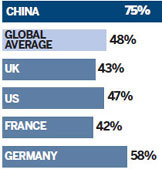 |
Lack of leisure time takes toll on workers Chinese people have seen a decrease in leisure time in the past three years, a new study shows. About 1,000 people nationwide were polled in August and September and 70 percent said they are unsatisfied about the amount of leisure time they have. [More] |
|
Overwork threatens health of office workers More than 70 percent of Chinese white-collar workers suffer from overwork and are at a greater risk of having health troubles as a result, according to a recent survey. The survey polled 5,000 white-collar workers and concluded that the majority of young people in China work under a load of stress they find difficult to cope with. [More] |
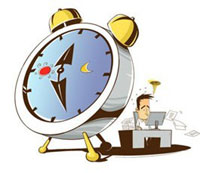 |
Work stress blamed for deaths of media workers A 28-year-old reporter with a local TV station in Zhengzhou, capital of Henan province, died of a sudden myocardial infarction brought on by too much work. Liu Jian, a reporter who worked for the TV station's legal channel, wrote a micro blog saying his health took a turn for the worse on May 17. [More] |
|
Why we worry |
|
Long hours |
High house prices |
Cost of living |
|
A recent health survey showed that more than 30 percent of those polled work more than nine hours a day. The report showed that 36.3 percent of respondents work nine to 10 hours a day, longer than the statutory working hours. However, more than 60 percent of those polled regard long working hours as normal. [More] |
Home prices rise for sixth month Home prices in major cities increased for the sixth consecutive month in November amid rising market expectations. The average price of new homes in 100 monitored cities increased 0.26 percent monthly in November to 8,791 yuan ($1,395) per square meter. A rise of 0.17 percent was recorded in October. [More]
|
With China set to kick off its annual legislative session, many Chinese are expecting lawmakers to take heed of the rising costs of consumer goods, housing and stocks. Their expectations are well-justified. China's Consumer Price Index (CPI) grew by 5.4 percent year-on-year in 2011. [More] |
|
Chinese employees work 8.66h daily: survey Chinese employees work 8.66 hours daily on average and spend 0.96 in transit, according to a newly released survey. The survey shows that on average Chinese workers spend 7.33 hours sleeping, 8.66 hours on work, 0.96 hours on the road and 7.05 hours on other activities. [More]
|
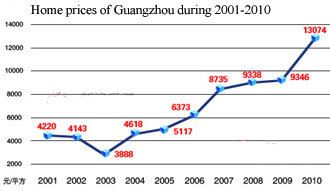 Source: Guangzhou House Administration Bureau |
Beijing, Shanghai overtake Hong Kong in living cost Beijing and Shanghai are now Asia's seventh and eighth most expensive places to live in, overtaking Hong Kong. The two cities are more expensive now due to "significant price inflation" and a strong yuan. They are now the world's 35th and 41st most expensive cities, respectivel. [More] |
|
The pressure to purchase |
|
70% of women require house before marriage Almost 70 percent of women interviewed for a survey regard having an apartment as a prerequisite for men to ask for marriage, Chongqing Morning Post reported Thursday quoting an survey on the status of marriage and relationships in China. The survey also shows that 80 percent of single women believe only men who make more than 4,000 yuan($634) a month deserve to have a relationship with a woman, more than 10 percentage points up from 2010. [More] |
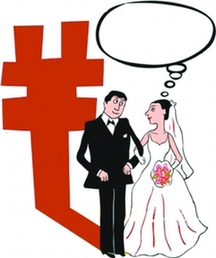 |
Two-thirds buy homes before marriage Nearly two-thirds of Chinese people prefer to buy homes before they get married, while the average price they are willing to pay for an apartment is 13.4 times their annual family income, a survey showed on Monday. Out of those who got married without owning an apartment, 29.4 percent said they would like to buy a home in the next two years. Around 11 percent of single people also said they would like to do the same in the following two years. [More] |
|
The tale of two owners |
|
|
Ma Ying-jeou
Taiwan leader Ma Ying-jeou’s relations with his wife Chow Mei-ching is the envy of many people. On Aug 20, 2011, Ma wrote on his Facebook, the day was their 34th marriage anniversary. He recalled when they got married he was studying at Harvard University and lived a very simple life. Their wedding house was a university dormitory and the quilt had been used for 34 years. Their furniture was old pieces discarded by others or bought at a flea market. |
Ren Zhiqiang At a time when houses were allocated, most couples got their own houses many years after they got married. The house they normally got was a bungalow without a kitchen or a dormitory. Most families get their apartments when they have their second child. I was allocated house aged more than 40. (From Ren’s blog, Ren is a property mogul in China) |
|
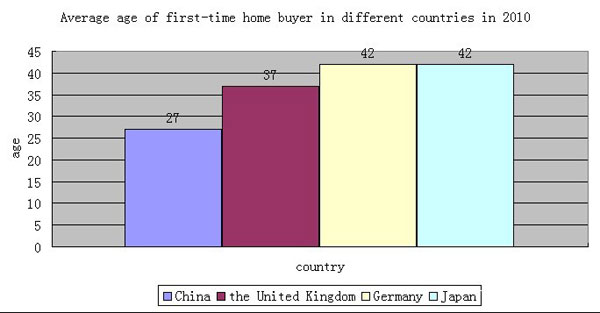 Source: Beijing Morning Post |
|
|
Debate |
||
|
Pro |
Con |
|
Beijing's youngsters should buy a house before they are 27 as they will lose their last chance to do so. Their incomes will never catch up with the increasing rate of house prices.— Internet user Da Bing
If you don't have your own house in Beijing, how can you register a Beijing Hukou for your children and have them educated in Beijing's schools? — Internet user Zhun Mama, 79
Most young men aged around 27 need to buy a house due to the pressure to find a partner. Many young girls see an apartment as a condition to marry their boyfriends. — Internet user Sun-yuepingso
Many countries have a sufficient supply of low-rent housing, while China doesn't. In addition, those who have a home at 27, have only an apartment rather than a house or villa which is bought by Americans at 42. ?— Internet user Zhangfengyu |
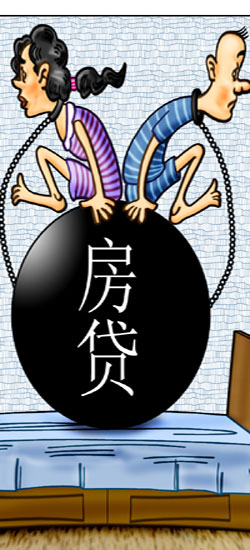 |
The concept of marriage in China is becoming more practical nowadays. No matter how self-confident a woman is, she will feel she is losing face if her boyfriend or husband doesn't have a home. –Chen Xiaomin, the director of Women Research Center of Shanghai University of Political Science.
Even in terms of high income people who work on Wall Street, most of them will start to consider buying a home at 35. It is abnormal that Chinese graduates pinch and scrape to buy a home. — China eCapital Corporation CEO Wang Ran
The young generation is too fickle. In the 1990s, the price was low, but noone could afford. They still got married, and no one complained. — Internet user Niwenlinso
I've seen many young men giving up good opportunities because of buying a house and it affects their personal development in a great extent. — Wu Qilun, financial commentator |
|
Focus on wealth |
|
|
Greater wealth does not generate more happiness
In 1974, economist Richard Easterlin pointed out that beyond a certain point - presumably when people's basic needs for food, shelter, public order and work are met - greater wealth does not generate more national happiness. The America of 2007 is far richer than the America of 1977. Our homes are bigger and crammed with more paraphernalia (microwave ovens, personal computers, flat-panel TVs). But happiness is stuck. [More]
|
"We ultimately get satisfaction from our relations with family and friends, the love we give or receive, the meaning we find in work, service, religion or hobbies. The strongest survey finding is that married people are happier than singles, particularly widowers and divorcees."-- Tom Smith of the US National Opinion Research Center. |
|
Money can't buy happiness, cities survey finds
Shanghai is a wealthy city and living standards are high but many of its residents are far from happy, according to a national city survey. Shanghai trails only Hong Kong in living standards while it ranks fourth in its ability to create wealth. But it falls behind many smaller cities to be only the 97th in a list of "happiest cities" in China. [More]
|
People's goals were divided into two categories: extrinsic (things like wealth, fame and personal image) and intrinsic (for example, meaningful relationships, health and personal growth). Achieving intrinsic goals led to higher self-esteem and a greater sense of well-being while attaining the extrinsic goals of wealth and fame led to anxiety and unhappiness--Finding of psychologists at the University of Rochester |
|
GDP alone can't make people happy
The General Secretary of the Communist Party of China Hu Jintao's address to the 18th CPC National Congress on Nov 8 stressed the importance of improving people's livelihood. He set a goal to build a xiaokang (moderately well-off) society by 2020, when the country's GDP and people's income would be double that of 2010. The fundamental question is whether a richer nation will also be a happier nation? The answer is: "Maybe". [More]
|
"We humans are social animals. We have a deep 'need to belong'. We, therefore, benefit from having loving companions through the journey of life, from having people with whom we can share our suffering and sorrow and our good fortune and celebration." psychologist David Myers
|
|
Distorted values and lost souls |
|
Between 2008 and 2010 nearly two in every 10,000 multi-millionaires with a net worth of more than 100 million yuan lost their lives; for police officers, the country's most dangerous occupation, the death rate is three in every 10,000 police officers. Experts, suggest that the way for beleaguered tycoons to relieve pressure on themselves and to regain their passion for life is to communicate with friends and family, to go on trips and to do physical exercise. [More] |
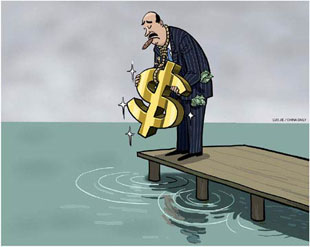 |
We are on the wrong path of money worship The current generation of young Chinese grew up during the era of reform and opening-up, when we were bombarded by slogans on materialism. We have plunged into the pursuit of material success without any regard for moral guidance and just simplified the definition of social development as economic achievement. Thus economic achievement became the only general pursuit of the whole society. [More] |
|
A poll A 2010 Reuters-Ipsos poll of people in 23 countries and regions found that more than two-thirds of Chinese surveyed believed that "money is the best sign of a person's success". |
“Whether one loves life or not depends on whether he/she is interested in the turning of day and night, the cycle of seasons and the joy from these changes. If one has no interest in these, life is nothing but a painful burden for him/her.”–Goethe | “If life becomes unbearable, we will think of changing the surroundings. However, the most important and the most effective way is to change our attitudes, which we rarely think of. To make up our mind to carry it out is just too difficult for us. --Wittgenstein |
|
One day when I was 25 and wearing heavy makeup, I drove a luxurious Volvo to my big house in Taipei to have lunch with my celebrity husband. While I was waiting for the lights, I saw myself in the rearview mirror, a beautiful face, but wearing a worried look. I was so unhappy. I was so confused, I have so many things: good job, beautiful face, brand name car, big house and celebrity husband. Anyone has one of these will be happy, right? After deep thought I came to conclusion: my husband is bad. If I change to a good husband and have a son and a daughter, I would be happy. [More] |
Lost soul What makes one lose feeling for nature? What makes one lose taste for art? It’s your soul. It seeks illusion and emptiness. It is seized with materials. If one feels life is pointless and everything boring, it is because the soul is drifting without a direction or an end. Happiness is a feeling of soul and it also derives the soul. Rousseau once said, everyone is the owner of his or her happiness. For one who knows how to seek happiness, nothing can really make him or her miserable.
|
|
Final words |
|
Stress comes from the outside but it derives the inner soul. For individuals, outside stress cannot be changed but attitudes can. With an unpeaceful mind and distorted value, one will always feel anxious and unhappy however much wealth he or she has. Rousseau once said, everyone is the owner of his or her happiness. For one who knows how to seek happiness, nothing can really make him or her miserable. |